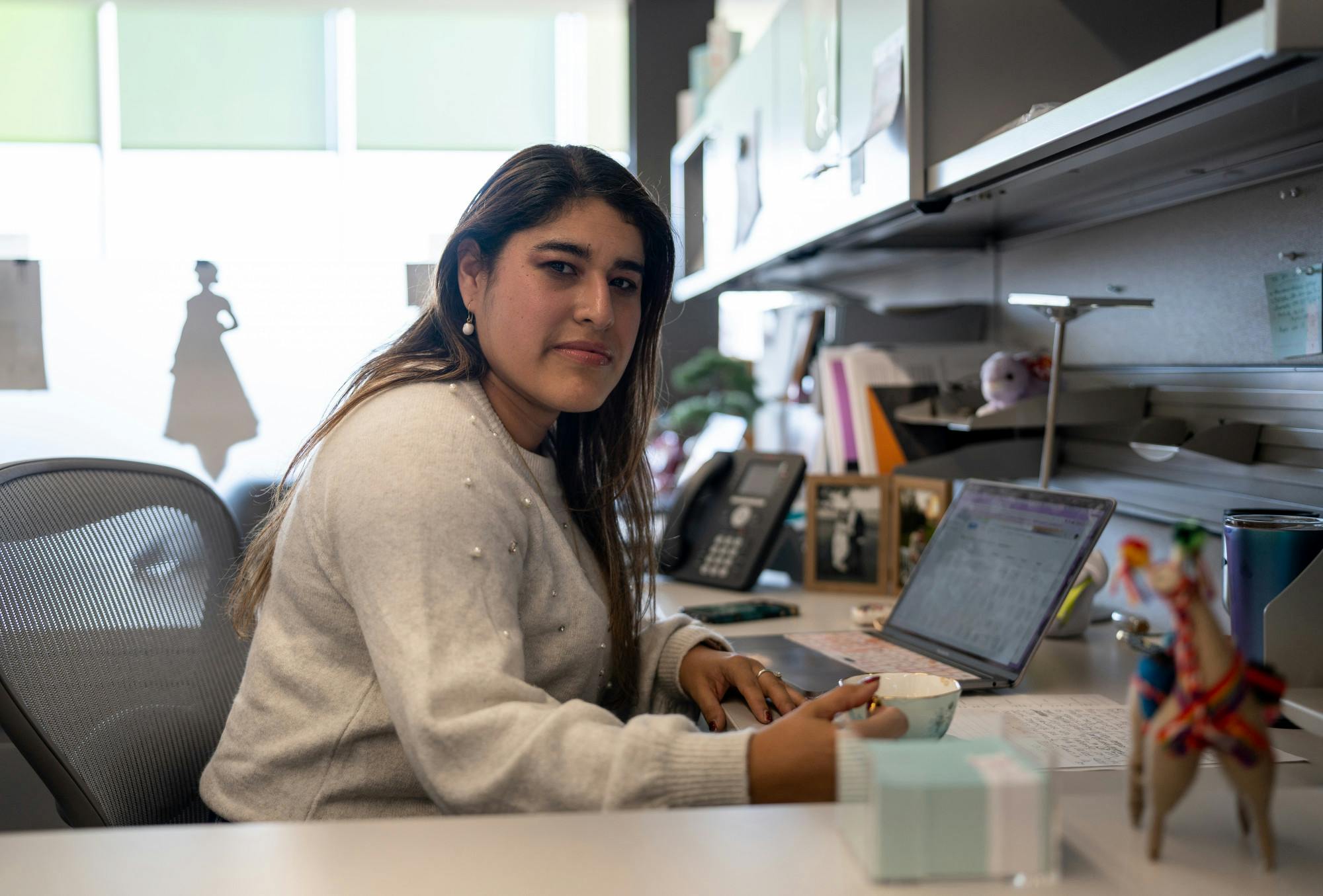The total percentage of faculty and academic staff of color at Michigan State University is 28.9%. For faculty members like public affairs professor Ramya Swayamprakash, the lack of diversity can be isolating.
“It’s just (a) constant feeling of being an outsider, having to prove that I belong here,” Swayamprakash said. “And it oftentimes leads to an imposter syndrome, which is really hard to sort of break out (of). I don’t think a lot of my white colleagues have to ever think or engage in those sorts of thoughts on an everyday, existential level.”
Swayamprakash said being a woman of color disadvantages her on a regular basis, particularly with colleagues casting doubt on her abilities.
“(My white colleagues) question my native tongue, which is English,” Swayamprakash said. “Because I’m a minority, I don’t speak ‘American.’ … These kinds of things, especially in the work environment, can be detrimental to anybody, because then other people begin to see you as not so capable because you don’t speak the right way.”
International relations professor Robert Brathwaite is Vietnamese and Black. He said this phenomenon happens to students of color as well and can lead to feeling inadequate. He feels like he can't make any mistakes and having a multiracial background can perpetuate the feeling of estrangement from his white counterparts.
Comparative culture and politics professor Sejuti Das Gupta, who is Indian, said she feels pressured to validate or prove her knowledge.
“I had to learn I was competing with my white colleagues that probably have been a part of the system for a much longer time,” Das Gupta said. “That was definitely a disadvantage for me. Initially, for two years, I put in extra hours of work.”
Das Gupta said an especially challenging moment of pushback was when students found her accent hard to understand, which she didn't know how to control. An accent, she said, is how a minority speaks a language.
Spanish and cultural studies professor Claudia Berrios-Campos is Peruvian and Latina. She said stereotypes associated with different racial and ethnic backgrounds can permeate her relationships with students. Often, she said, others are surprised by her education.
“(They’re) really impressed that I even managed to get a degree,” Berrios-Campus said. “They assumed by default that I didn’t have access to great education, but I am fortunate to say that I did. It’s not the same story for a lot of Peruvians, but I had a very good and diverse education.”
Berrios-Campos also said she noticed a difference in the way her students receive her expertise as a woman of color. When she gave comments about the role of U.S. colonial structures in her Latino American literature class, she said she received "attitude" from students.
"Almost like, ‘Who are you to talk about American politics?’" Berrios-Campos said. "I’m a professor!”
Swayamprakash has experienced difficulty trying to connect with her students as well, as a direct result of her race.
“I do think there is a fair degree of resistance to somebody who doesn’t speak like Americans, and I don’t think it’s malicious,” Swayamprakash said. “I think it’s just creatures of habit. Having somebody new who doesn’t look like, speak like you can be challenging. I've had my fair share of students who don’t like my face because of the way I talk, because I’m Indian.”
Swayamprakash said students frequently assumed she studied a STEM subject rather than social science. Assumptions like these feed into the notion that humanities are less relevant than sciences, Barrios-Campos said.
“The lack of seriousness is perceived,” Swayamprakash said. “The humanities have certain stigma on not being considered true contributions in the development of humanity. This always makes me very sad and a little angry.”
Barrios-Campos said while subjects like biology, finance and medicine are essential facets of human progress, the humanities provide an extra element of future implications. These nuanced contributions, she said, have become increasingly important in the face of historical events like the pandemic, which has affected human contact.
“With sciences versus social sciences, there is a definite difference of acceptance,” Das Gupta said. “The other thing that I’ve experienced is … I was very passionate about doing field work. But when I would tell that to students … they made the decision that I chose that path because I was not good at philosophy or theory.”
Even within social sciences, Das Gupta said, there is an assumed hierarchy: scholars that study theory are considered serious, while those that do field work can be perceived as less accomplished academically.
The preconceptions surrounding minorities in humanities also affect academic endeavors beyond the classroom. Brathwaite said making professional connections can be difficult.
Support student media!
Please consider donating to The State News and help fund the future of journalism.
For professors of color, networks may look different than that of their white colleagues. However, Brathwaite said, this is not necessarily a reflection of their competence, but rather the institutional structure that limits minorities’ access.
Das Gupta said there are a number of grants that professors cannot apply for if they are not citizens – which is a significant disadvantage for many minorities.
“If you want to retain a diverse group of faculty, we need to think about, ‘How do we enable them to do that kind of work?’” Das Gupta said. “I don't think in this situation, having equal funding makes it equal. I think it needs to have an equal outcome.”
In the midst of these issues, Brathwaite said, an arc of progress can be seen within academia.
“It seems like we’re moving beyond the conversation towards people understanding actions need to be taken," Brathwaite said. "Now, that still means these things need to be implemented. I think there’s a lot of work that still needs to happen.”
Discussion
Share and discuss “'Constant feeling of being an outsider': The experience of minority humanities professors ” on social media.







